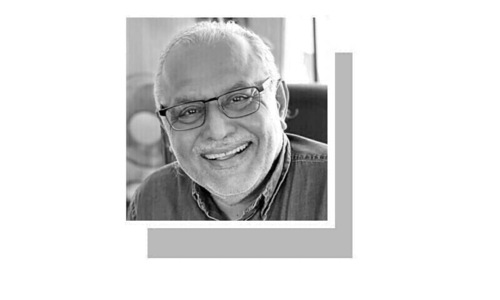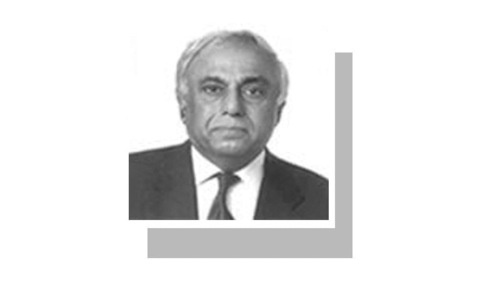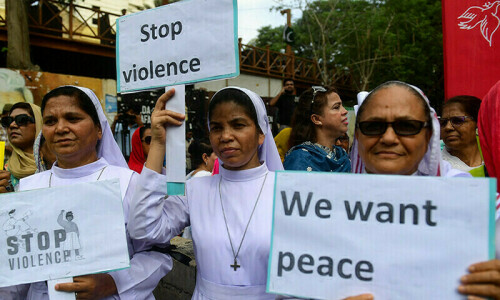THIS is not the first time that a package of multiple constitutional amendments is being contemplated.
The package of amendments under the umbrella of the Eighth Amendment was passed by the National Assembly in November 1985. It modified as many as 65 articles of the Constitution and incorporated most of the provisions of the Revival of the Constitution of 1973 Order promulgated by military ruler Gen Ziaul Haq.
The amendment, which included the validation of Zia’s martial law, was passed almost under duress, as its passage was tied to the revival of the Constitution and democratic order. The amendment significantly changed the form of government from a parliamentary to a quasi-presidential one. Although the National Assembly was elected in 1985 on a non-party basis and was still under the shadow of martial law, it extensively debated the amendments for 41 days and even managed to amend 18 articles of the Constitution included in the amendment.
The second major exercise of wholesale amendments to the Constitution was undertaken during the rule of another military dictator, Gen Pervez Musharraf, who, following in Zia’s footsteps, made the passage of the 17th Amendment and validation of his unconstitutional acts a condition for lifting military rule. The 17th Amendment incorporated the Legal Framework Order, 2002, promulgated by Musharraf, which had amended almost 29 Articles of the Constitution. The National Assembly elected in 2002 passed the 17th Amendment in December 2003, after more than a year of political wrangling between Musharraf’s supporters and opponents.
The 18th Amendment passed in 2010 during the PPP’s rule was yet another effort to pass a large package of constitutional amendments. The objectives behind their passage were the restoration of the parliamentary character of the 1973 Constitution, which had been distorted by the 17th Amendment, and to ensure enhanced autonomy for the four provinces, respecting the aspirations of the smaller provinces. The package included a total of 102 amendments, which amended, substituted, added or deleted various provisions of the Constitution.
The Parliamentary Committee on Constitutional Reforms held 77 meetings over 10 months, spent 385 hours in deliberation, and reviewed 982 public proposals invited by the committee through newspaper advertisements, but all these in-camera proceedings were not a substitute for open debate, which is the essence of a democratic process leading to a durable consensus. The debate in the National Assembly and the Senate lasted for just two and four days, respectively.
Although the PPP did not have the requisite strength in the National Assembly and Senate, the amendment was unanimously passed, which shows that the changes addressed some real problems facing the country at that time and that the PPP had the ability to build broad consensus among different parties.
It is a simple game of promoting the careers of respective favourites.
Now, the ruling PML-N and its allies, such as the MQM and PPP, are fervently working to get another package of constitutional amendments (the 26th Amendment) passed by parliament, possibly before Oct 25. Although the final text of the proposed amendments was not available at the time of writing, some proposals had found their way to news reports and social media.
The initial draft had 53 amendments in almost as many articles of the Constitution. The PML-N led the effort to muster the required two-thirds majority for the passage of the amendments. It was so optimistic that it could achieve the required numbers that it summoned the two Houses of parliament around the last week of August.
Despite the fact that the Supreme Court’s interpretation of Article 63-A, which prohibited the counting of the votes of defecting members in parliament, was still valid (the court later reversed this) and the coalition parties themselves lacked the requisite numbers, the parliamentary sessions were kept going till midnight in the hope of securing a two-thirds majority.
While many independent and opposition members complained of strong pressure and offers of inducements to vote for the amendment, the sessions had to be prorogued indefinitely on Sept 16, without even formally introducing the proposed 26th Amendment. This was a huge setback for the ruling coalition, but the silver lining is that despite all resources being employed to apply pressure on other parties and independent members or tempting them through inducements, no headway could be made without holding meaningful discussions with the opposition parties and independent members in an attempt to forge a consensus.
The PML-N has apparently failed to convince parliamentarians in favour of the proposed amendments; first, because the political divide across parties is very wide — it needs to be bridged through continuous dialogue over a long period; and second, the proposed amendments don’t seem to be addressing any real public issue.
Apparently, these amendments are being proposed and supported because the sponsors do not want to see certain judges in powerful positions and the amendments seem to weaken their chances of assuming those positions. To the opponents, the amendments seem to block the way of their favourite judges. It is a simple game of promoting the careers of respective favourites and no major principle or question of public welfare is involved.
The central point of the proposed amendments is the creation of a constitutional court or division which may dilute the powers of the incoming chief justice of the Supreme Court. As a sideshow, a dangerous amendment has also been introduced to extend the term of the existing chief election commissioner and four members of the commission and even reappoint them for a second term.
As a result of the hectic exchange of views over the past two weeks, a leaner draft covering 24 points has emerged. Irrespective of the final outcome, the healthy trend is that political parties are talking to each other and accommodating each other’s point of view. Sometimes, the process is more important than the outcome.
The writer is president of the Pakistan-based think tank Pildat.
X: @ABMPildat
Published in Dawn, October 19th, 2024

















































Dear visitor, the comments section is undergoing an overhaul and will return soon.